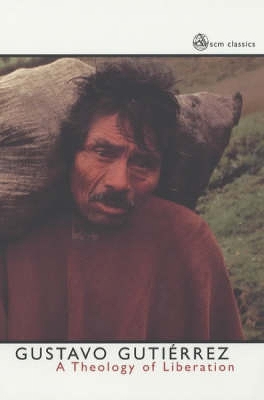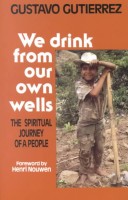SCM Classics
2 total works
This is the credo and seminal text of the movement which was later characterized as liberation theology. The book burst upon the scene in the early seventies, and was swiftly acknowledged as a pioneering and prophetic approach to theology which famously made an option for the poor, placing the exploited, the alienated, and the economically wretched at the centre of a programme where "the oppressed and maimed and blind and lame" were prioritized at the expense of those who either maintained the status quo or who abused the structures of power for their own ends. This powerful, compassionate and radical book attracted criticism for daring to mix politics and religion in so explicit a manner, but was also welcomed by those who had the capacity to see that its agenda was nothing more nor less than to give "good news to the poor", and redeem God's people from bondage.
A significant event in the development of liberation theology was the publication of We Drink from Our Own Welfs:The Spiritual Journey of a People by Gustavo Gutierrez. Gutierrez's book was the fulfilment of the promise implicit in his earlier A Theology of Liberation, which was first published in 1971 and quickly became a charter for Latin American theologians and pastoral workers. We Drink from Our Own Wells is the nuanced articulation of the Christ-encounter as experienced by the poor of Latin America in their struggle to affirm their human dignity and claim their true identity as the sons and daughters of God. Such is the writing that it is impossible to reduce liberation theology to a political movement.The spirituality of We Drink from Our Own Wells does not allow for such reductionism. The telling of this spiritual journey has had a profound impact on Christians around the giobe. Here in this SCM Classic edition, the text is introduced to us by Marcella Althaus-Reid, who herself is passionate about doing theology in reality, by being informed by political, economic, gender, sexual and postcolonial analysis.A self-proclaimed "indecent theologian" she brings a fresh awareness to the reading of Gutierrez's work ensuring that the passion for theological justice in which this text was formulated is as relevant and significant to theologians wishing to pursue justice and decency in all walks of life today.
After studies in medicine and literature in Peru, Gustavo Gutierrez studied psychology and philosophy at Louvain, and eventually took a doctorate at the Institut Catholique in Lyons. Considered to be the father of liberation theology, he holds honorary degrees from some 20 universities. Currently, he is John Cardinal O'Hara Professor of Theology, University of Notre Dame, USA and is working on a book exploring the historical background and continuing theological relevance of the preferential option for the poor.
After studies in medicine and literature in Peru, Gustavo Gutierrez studied psychology and philosophy at Louvain, and eventually took a doctorate at the Institut Catholique in Lyons. Considered to be the father of liberation theology, he holds honorary degrees from some 20 universities. Currently, he is John Cardinal O'Hara Professor of Theology, University of Notre Dame, USA and is working on a book exploring the historical background and continuing theological relevance of the preferential option for the poor.

